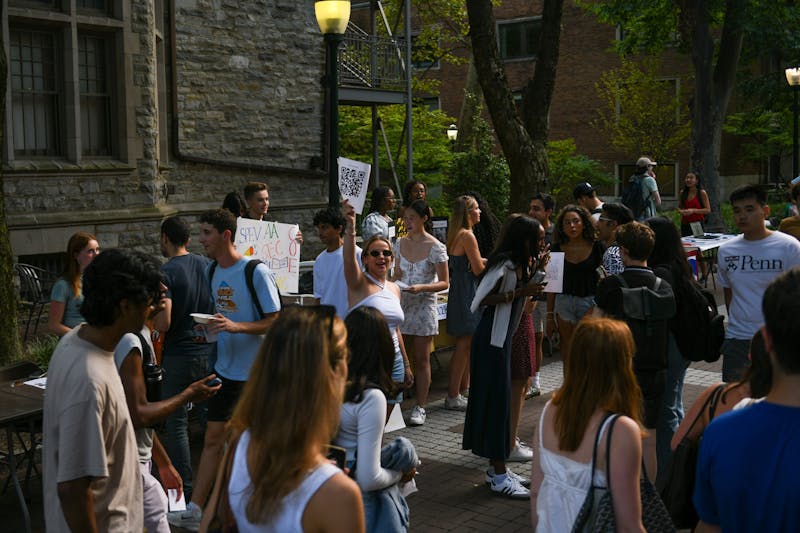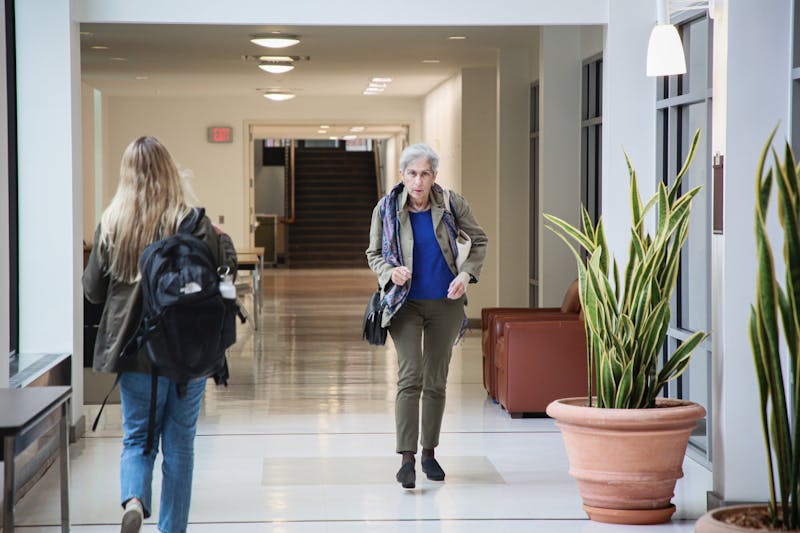For many Penn students, Chinatown is a place to go for bubble tea, a cheap bus ticket to New York or for BYOBs with inexpensive Asian food and lax enforcement of drinking laws. For the close-to-1,000 residents of Chinatown, it's home.
Today's Chinatown grew from a small Chinese-owned laundry in the late 19th century into a true community with dozens of small businesses, arts organizations and a charter elementary school. But the existence of this thriving community often goes ignored by policy makers and real-estate developers. Projects like the Vine Street Expressway, the Convention Center and most recently, the proposed stadium were all conceived without significant amounts of input from community organizations. And just two weeks ago, the tendency to forget about Chinatown as an actual neighborhood manifested itself yet again in the recently announced plan to move the Foxwoods casino to the Gallery on 10th and Market streets.
Originally, the casino had been slated for construction on the Delaware River waterfront, but continued protests from nearby residents led policy makers to move the casino to the Gallery.
"We think it was great that there finally was some kind of response to public concern about the waterfront site," said Ellen Somekawa, executive director of the Philadelphia-based non-profit Asian Americans United. "The mayor and others have said that these slot parlors should be located no closer than 1,500 feet of homes, places of worship, schools, etc. This one [in the Gallery] would be within 50 feet, so this doesn't accord with those kinds of principles."
Foxwoods Casinos, the developer of the slots parlor, has defended the new location, citing many potential economic benefits of placing the casino at a transportation hub in Center City. "It would be a unique opportunity to revitalize that entire Market East corridor," said Foxwoods Casinos spokesman Tim Spreitzer. "Right now there are a number of vacant properties in that corridor, and [the casino] would help businesses and other assets in that surrounding community."
But activists are skeptical.
"Casinos are known to get people to spend their money in the slots, as opposed to going out and doing their shopping," Somekawa told me. "Based on other cities, it looks like casinos have the effect of hurting small businesses."
The construction of a slots parlor in the Gallery would also bring many of the associated social costs to the residents of Chinatown. Increased alcohol use, gambling addiction and heightened crime levels could contribute to a decreased sense of safety and community in the surrounding neighborhood.
Even more importantly, the fact that community groups were essentially excluded from the decision-making process is further indication of the dismissive attitude policy makers have toward Chinatown.
Organizations like the Philadelphia Chinatown Development Corporation weren't even notified of the casino's move until a few hours before Mayor Nutter's announcement.
Foxwoods claims they have made significant strides toward involving community groups in the discussion.
But in a sense, these efforts are just lip service. Officials have hastened the pace of development to fall within the current legislative season. If Foxwoods Casinos and the City of Philadelphia actually wanted to make a concerted effort to engage the Chinatown community, they would extend the timeline past the November elections and employ foreign-language translators at their discussions.
This way, community groups could also perform their other essential task of mobilizing Chinatown's voters, while also having enough time to brainstorm critical suggestions for the casino plan. The process takes time, because Chinatown's immigrant population often doesn't have the English-language capability to engage in controversial debates with city and Foxwoods officials.
If Philadelphia wants to truly promote the economic benefits for this casino project, it's time for policy makers to allow Chinatown's voice to be heard.
Lisa Zhu is a Wharton and College senior from Cherry Hill, N.J., and United Minorities Council chairwoman. Her e-mail is zhu@dailypennsylvanian.com. Zhu-ology appears every Thursday.
The Daily Pennsylvanian is an independent, student-run newspaper. Please consider making a donation to support the coverage that shapes the University. Your generosity ensures a future of strong journalism at Penn.
DonatePlease note All comments are eligible for publication in The Daily Pennsylvanian.







